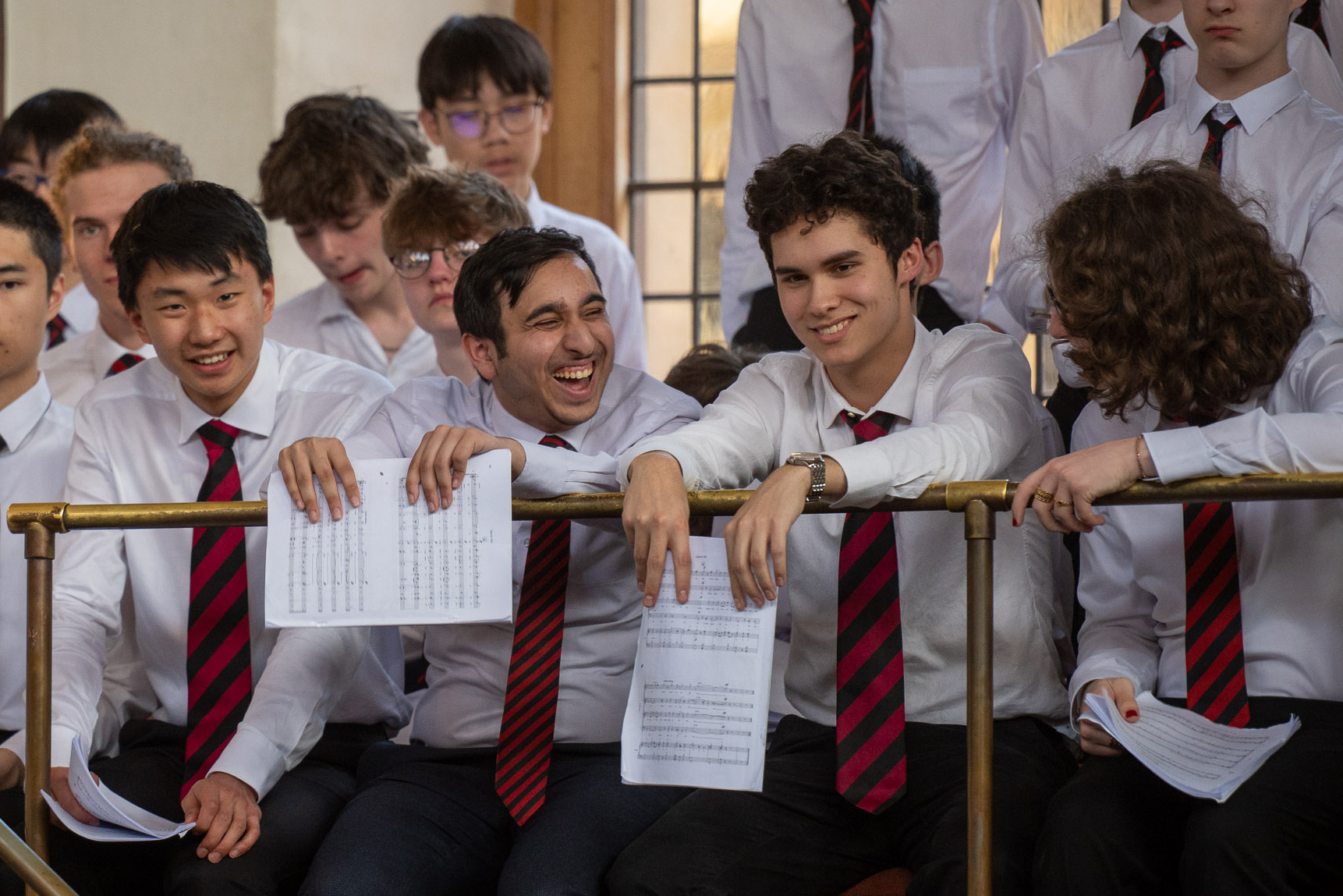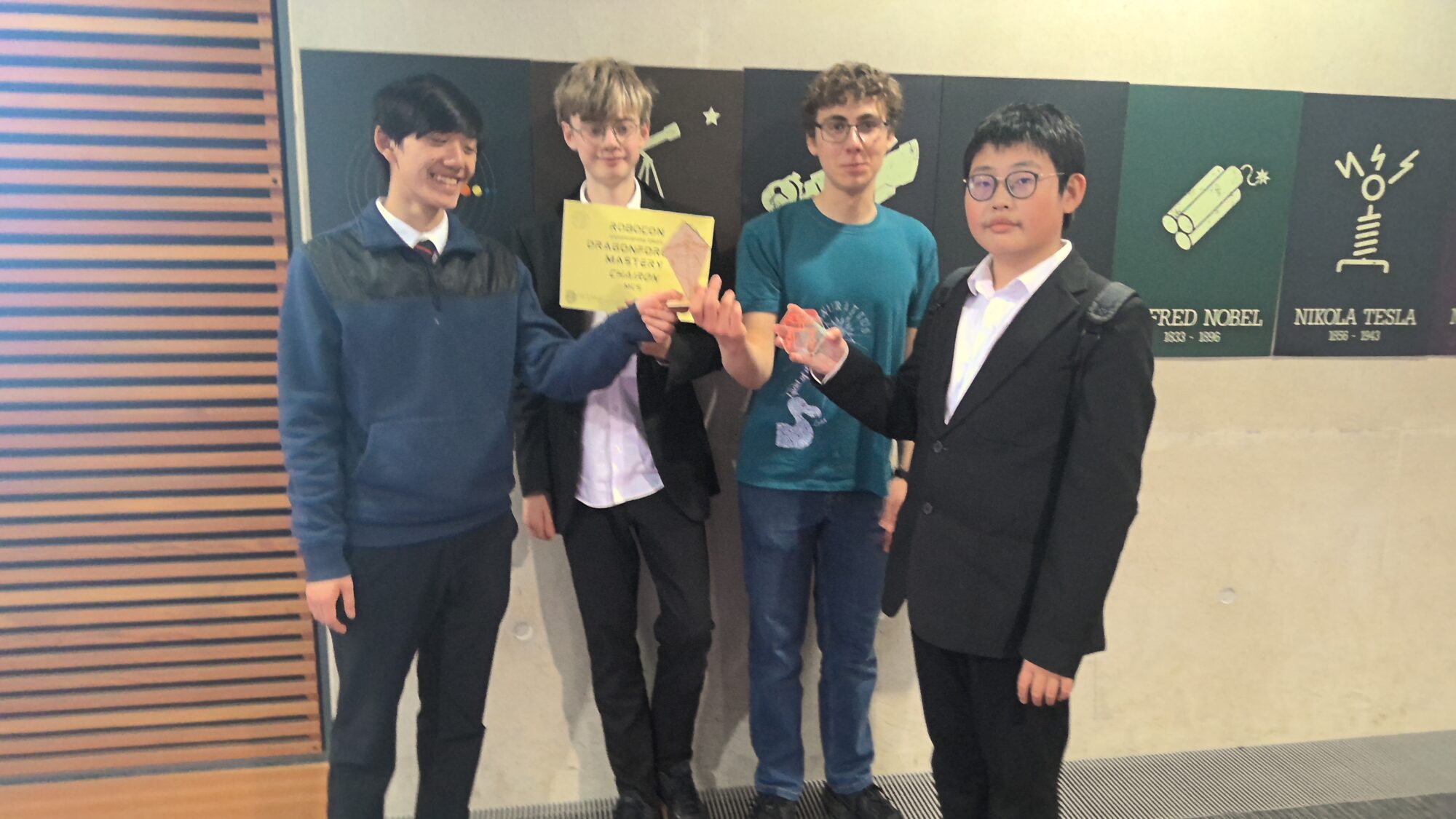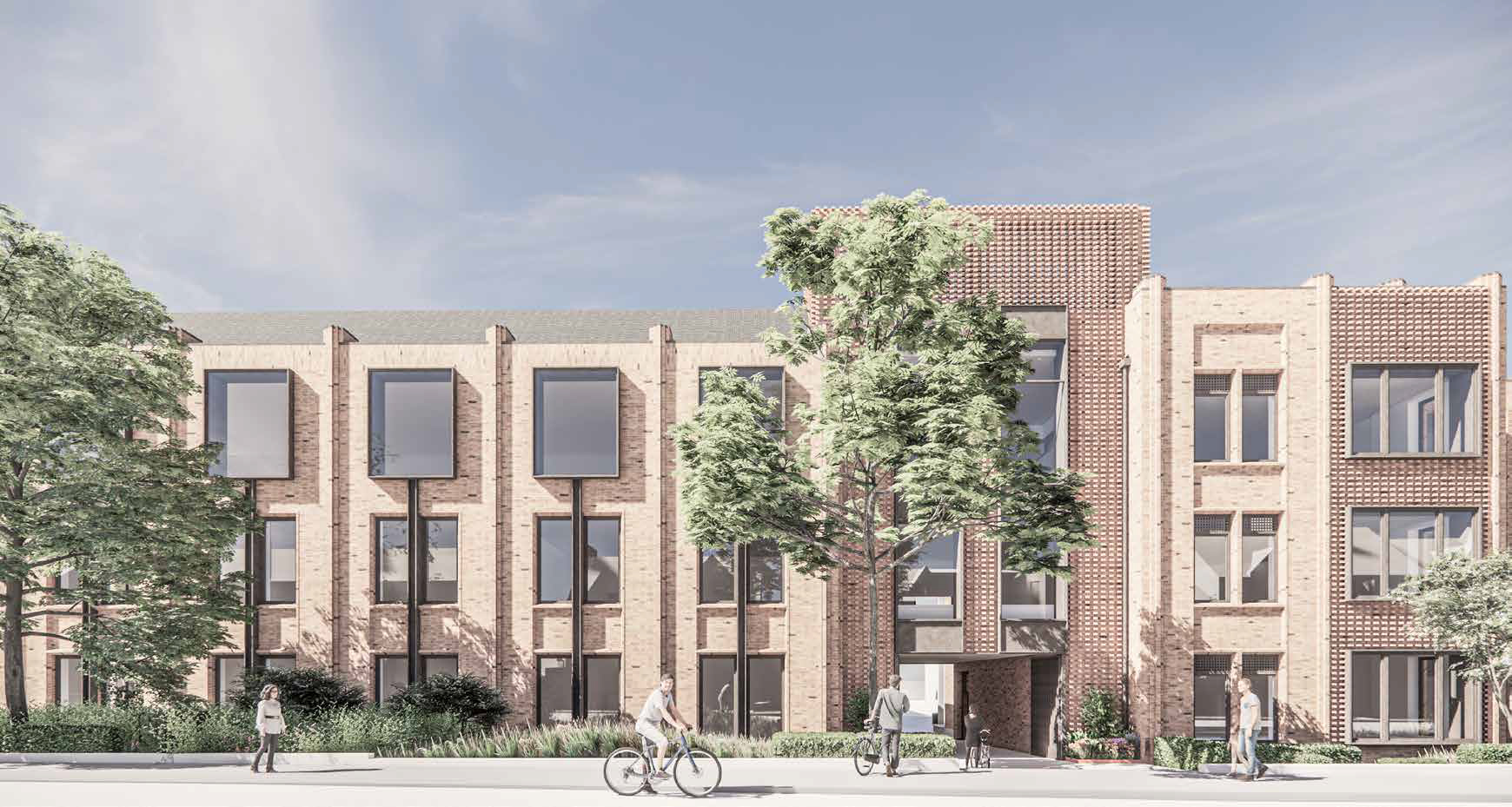MCS was informed by his daughter Juliet that Roland had sadly passed away on 17 February 2018.
Juliet was kind enough to share these words with the School:
‘Roland Hopkins was born on 2 January 1932 in Headington, Oxford. He was educated at Magdalen College School, after which he did National Service as a navigator in the Air Force. After National Service, he resumed his education, gaining a degree at Birkbeck College, University of London. He then went on to become a well-respected physics lecturer at Abingdon College of Further Education. He also worked on a satellite project with a group of fellow researchers for many years.
At the age of 58, Roland took part in a solar car challenge, developing the communication systems for a solar-powered car that took part in a 3,000 mile race from Darwin to Adelaide in Australia. He also took turns driving the car in blazing hot desert conditions, refreshed only by a bottle of water, most of which went over his head to keep him cool. After a potentially deadly spider had been spotted in the car by one of the drivers, an extensive search of the vehicle was mounted, but nothing was found. So Roland, whose turn it was next, had to get into the car knowing that the spider might still have been in there. This, coupled with the fact that the canopy of the car had to be sealed from the outside, led to a very uncomfortable and nerve-wracking journey. Something which Roland once again took in his stride.
His expertise in radio communications also led him to work for the Williams F1 racing team, helping to develop their radiocommunication systems.
Roland was lucky enough to say that he had never been bored in his whole life. No doubt this was due to an inquisitive mind and being surrounded by lots of electronic equipment which he had collected over the years. He was a keen radio ham for the entirety of his life, and built a shed specifically to house all his radio equipment. Most evenings he could be found in his shed, pipe in mouth, tapping furiously away in fluent Morse code to other radio hams around the world. Sometimes, this went on late into the night. He often tried to encourage his children and grandchildren to take an interest.
He was an accomplished pianist and whenever there was a keyboard at hand, he would effortlessly rattle off a Chopin étude or Liszt Rhapsody. In his later years he also learned the violin, which he played in an orchestral concert at Merton College.
After being on the waiting list for ten years, Roland finally realised the dream of his lifetime, to fly in a Spitfire. All the other people taking part in flights that day declined to do any aerobatics. But Roland, who was the oldest by far, nonchalantly volunteered to take part in any aerobatic manoeuvre the pilot cared to do. He later described this experience as one of the greatest moments of his life.
Roland was never motivated by money or material goods and was a kind and gentle man. A loving husband, father, stepfather and grandfather, he had many passions and interests, such as science, aviation and music. He was never happier than when tinkering with a circuit board, or wrestling with an equation.
When Roland was a boy, his interest in science led him to experiment with homemade bombs. After detonating a particularly potent prototype,which rattled all the windows in the neighborhood, the lady next door stuck her head out of the window and screamed, “He’ll kill us all!”
Roland also appeared on television after he created a satellite receiver out of an old drainpipe and bits of wire capable of receiving information from the BBC’s weather satellite. This was typical of Roland’s ingenuity: he was able to create useful and imaginative things out of everyday objects.
Among his other passions Roland also loved comedy, particularly ‘Monty Python’, and would record on cassette all of their shows to play to friends and family. He would avidly look forward to watching re-runs of ‘Sergeant Bilko’ and ‘M*A*S*H’, so that he could ‘get them in the can’ as he would say.
Later in life, Roland volunteered to ferry people to hospital in his car, which he did on a regular basis. He never asked for any payment for this service – just one example of his thoughtfulness and kindness to his fellow human beings.
Roland will be dearly missed by all of his family and all those whose lives he touched during a long and meaningful life’.
 MCS ranks among the top independent secondary schools, and in 2024 was awarded Independent School of the Year for our contribution to social mobility.
MCS ranks among the top independent secondary schools, and in 2024 was awarded Independent School of the Year for our contribution to social mobility.

 28 of our pupils achieved 10 or more 8 or 9 grades in 2024.
28 of our pupils achieved 10 or more 8 or 9 grades in 2024.
 In 2023-24, MCS received over £448,000 in donated funds.
In 2023-24, MCS received over £448,000 in donated funds.




